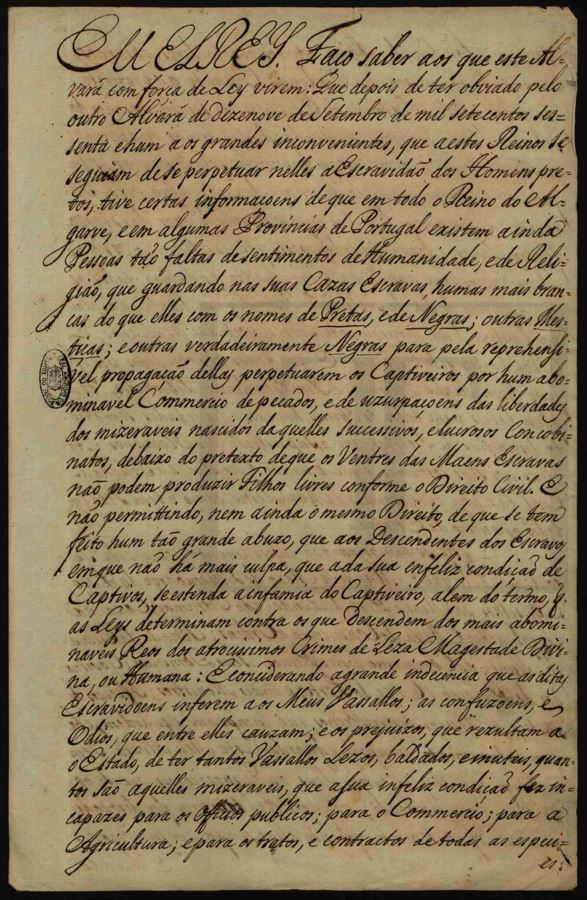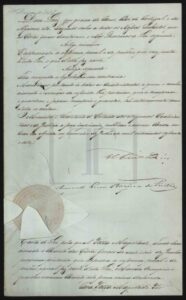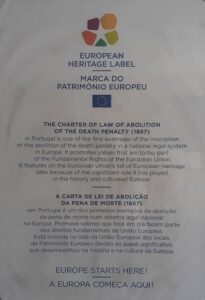December 2nd is celebrated as the International Day for the Abolition of Slavery.
Although it seems a distant reality, the Global Slavery Index of 2018 reports that, in 2016, around 40.3 million people were in conditions of modern slavery, the vast majority being women (71%). Of these, 24.9 million were in conditions of forced labor and 15.4 million in forced marriages.
The historical process that led to the outlawing of human trafficking and slavery in the light of Human Rights was long and tortuous:
By the law of 1761, D. José, king of Portugal, declared free all male and female slaves brought from Asia, Africa and America that disembarked in Portugal.
This law did not translate, however, into the end of slavery, since, in addition to the existing slaves, there were also all those who were born of a slave mother and who, for this reason, remained slaves. Twelve years later, in 1773, a new law was passed, known as the Law of the Free Womb. It determined that children born to a slave mother became free and that all slaves whose great-grandmother was already a slave could be freed.

Portugal, a pioneering European country in globalization, stands out for having had, during the history of its long colonial period, an important position in the global trade in slaves from Africa. Between 1450 and 1900, it will have trafficked around 11 million people.
In 1444, the first shipment of private initiative of 235 slaves from Africa arrived in Lagos, Algarve, probably giving rise to the first European slave market of the modern era. In mid 16th century Lisbon, African slaves represented about 10% of its population.
Despite the 1761 law, the illegal entry of slaves from the colonies persisted. With the independence of Brazil, many Portuguese who brought their slaves returned to Portugal. Upon arrival in Portugal the slaves were to become free, but the king granted their owners a special privilege to keep them.
However, the 1761 law is a law of modernity that begins a slow chronology, made up of advances and setbacks, towards the definitive abolition of the slave trade and slavery.
Portugal was one of the first European countries to prohibit the entry of slaves, but also one of the last to abolish, in 1869, slavery in its colonies.
Maria Trindade Serralheiro (text) and Ana Fernandes (trad.)
Senior Technicians, General Directorate of Books, Archives and Libraries, Portugal.


